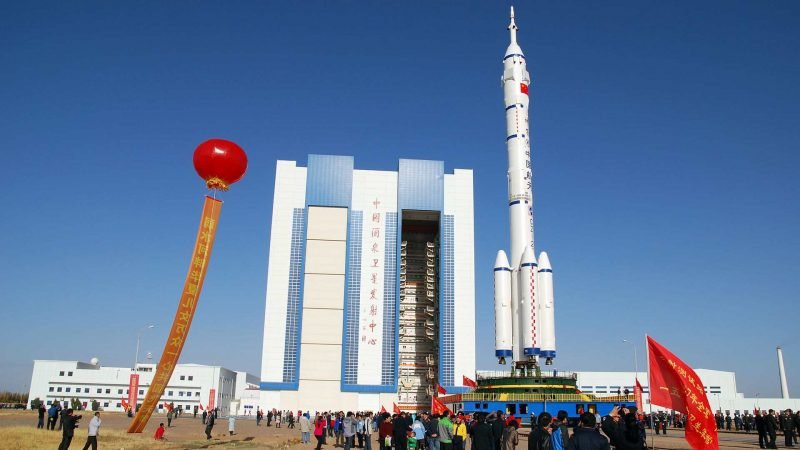The conundrum of China’s space politics: Argentina and beyond

China’s growing interest in the South American country Argentina comes off as no surprise keeping in mind the ‘influence’ it is hovering, over its neighbouring countries in last few years and also taking a step further with the Belt and Road Initiative which will connect the Middle Kingdom with Europe.
Strategically laying over its dominance in the form of mutual agreements and bilateral treaties often accounting to a near-impossible loan supply which will consequently make the respective countries indebted to the Chinese. This attitude has been so far working because of many reasons primarily being USA’s faulty foreign policies and it’s long drawn behaviour of showing ‘big brother’ attitude and taking other countries for granted, these countries thus now looking for an alternative. Not just that, China puts forward terms and conditions that seem to have a levy on the concerned country and strategically taking in land or a chance of business in return. It’s a slow burn but has been so far working.

Not considering North America, the only continent left for the Chinese government to come in terms of trade was South America. Since land connectivity is not a possibility, which experts say is the reason they (China) have explored and initiated what they are doing best after surface infrastructure projects globally – space science research and infrastructure. For a layman, it may sound completely bizarre and out of place to have such a deal but China being the ‘Sleeping Giant’ it is, knows what it is doing. Pouring in billions of dollars to carve out the economic crisis of Argentina, China made its ‘move’ by laying the foundation of a space station in a remote, rural Argentinian town of population roughly 7000, which will cover an area of 494 acres and will be rent-free, tax-free and will be completely under the control of China (run by the military) for the next 50 years! The government seems to have struck a good deal with a big economy but the locals, the citizens of Argentina in general and Public Policy experts think otherwise. The basic argument of everyone seems to be revolving around the fact that it’s the motive and intent of China that needs to be thought about and taken into consideration. The government (of Argentina) should realize that it is not a UN or World Bank granted loan nor Argentina has the support of an international group or union as trustworthy as the EU in Europe (LATAM seems to be only a human geographical indicator and has no other strong relevance – political or economic. And G20 is a diplomatic platform). It will be interesting to see what cards China holds in the coming years and whether it is successful to expand its horizon to the other Latin American countries (to geographically corner out the USA?). Conspiracy theories, security concerns have already struck the public nationwide.
China said that it’s only motive to build the station is for observation purposes which also helped them land a spacecraft on the dark side of the moon (January 2019). It will also in their terms act as a monument of peace between the two concerned nations. But one cannot again undermine the possibility of a politically irresolute establishment, one that does not allow its own countrymen to visit and inspect in any order except for school trips for students and periodic visits by the CONAE. Other concerning issues looming around include the whole debate of ‘militarizing’ space, something that is fueled by the USA. It might also interfere with the other observatory stations and consequently satellites in place, not discarding China’s long history of hacking and heckling into (classified) government data.

My claims can of course be judged as precarious; my conclusions preposterous. But no can deny the sheer abruptness and suddenness of a deal that took place between the farthest of the countries on the global map. The collaboration of CONAE (Argentine government’s space unit) and CNSA (the Chinese counterpart) is symbolic in nature, that represents many more agreements and treaties to be ratified in the coming time; ‘Space’ it seems is an easy target.
Some people do have contrasting views regarding this, with many saying that it is the symbol of new world power in place, something that the world should move on from the Western dominance of the USA and Europe and away from the Science-based monopoly. The world needs a balance and it is time to be optimistic about such projects and not negate them and throw them in a cob of tangled conspiracies (something USA is good at doing). Moreover, the growing scope of a revived economy due to Chinese investors and an increase in the number of job opportunities is a positive sign, so why worry about it and be pessimistic? Maybe, it is about Science. Maybe, it is about mutual cooperation. Maybe it is finally about humanity more than anything else. Only time will tell.
China will no doubt keep its scientific progress and experiments up its feet. It will eventually realize the Red Dragon can only ‘consume’ enough. But for now, it’s on a ride. Out of all the space research, the most significant other than the manned mission will be the GPS satellites and the global control of it. It will play a crucial role in world politics in the next two decades.
Nevertheless, Argentina will have to be careful in the ways it agrees to these bilateral agreements. The people of the country are hardworking and have the capability of being self-sufficient if required. Petty politics and corruption should not become a hindrance to that. Besides this, the constant shift in the world order and pivotal role-play of different nations will also matter to the still-developing nations like Argentina. The November elections in the USA will be an interesting watch.


















